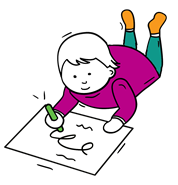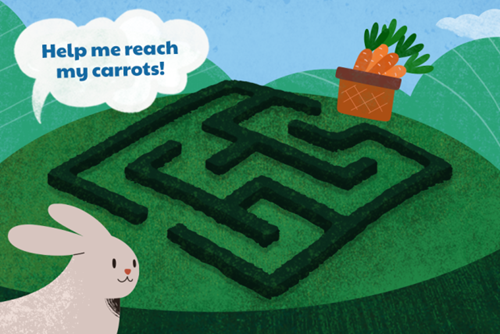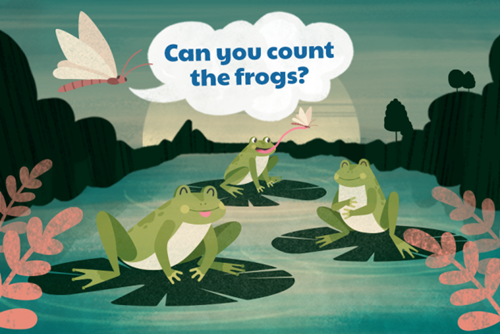At around two years old, your child will be more and more interested in other people and experiences. They are learning about the world around them and their place in it.
 They may be busy and active, and love to see what their body can do.
They may be busy and active, and love to see what their body can do.
This is often a time when children are joining in more with people outside of immediate family, starting with nursery and toddler groups. Their development is happening fast and they are facing a lot of new experiences.
They love to have you there to support them and give lots of encouragement to try new things.
Communication
From around two years old, your child will start to become more and more interested in other people and experiences.
Gross Motor Physical Development
Gross motor skills are the movements that use big muscle groups and your pre-schooler will now be very active and enjoy physical play. You probably see how much your child enjoys getting outside and they may have lots of energy. Your child might enjoy playing on the equipment at the park.
Most children will run, hop on one foot and be able to kick, throw and sometimes catch a ball by the time they start school. They should be able to safely manage going up and downstairs. The best way to help your child build on these skills is to give them plenty of opportunity to practise them.
The advice is that pre-school children should have three hours of physical activity over 24 hours. This will give them the chance to build confidence in their skills, as well as helping them keep healthy and learn good habits.
Fine Motor Physical Development
Fine Motor Skills use the small muscles in the hand and wrist. By this age most children will be skilled at using their hands more and for more ‘fiddly’ activities. They will love activities like art and trying to write their name.
Most pre-schoolers will be mainly left or right handed (it does not matter which!). They will be able to hold a pen or pencil using their thumb and fingers (not their fist). They will probably be drawing great pictures of you complete with a head and maybe some other body parts! They might be feeding and dressing themselves, just needing some help with tricky bits.
You can help your child build on these skills by giving them lots of chances to practise:
Problem Solving Skills
Problem solving skills describes your child learning to make more sense of the world around them. This is an important move towards independence. This builds confidence, self-esteem and the inner strength your child will rely on through life. Helping your child solve challenges that come up will help them grow their problem solving skills.
As adults we all sometimes struggle with the challenges we face. Your child will find it hard at times and not always get it right. Give lots of praise for trying and then work with them to come up with a plan to get there in the end.
Personal & Social Development
Personal and social development means learning about who we are as a person. Pre-schoolers are still learning about their feelings, and the feelings of others. They will be developing their likes and dislikes.
Encourage them to try new things and help them find out more about the things they show an interest in. Give your child chances to be around other children; either with family, friends or at the local park. Don’t worry if they just like to watch.
Parents who talk as they go about their daily activities expose their children to 1000 - 2000 words every hour!

Getting your child familiar with letter shapes can really help give them a head start when they start school, but writing doesn’t just have to be about words.
Even something as simple as a maze puzzle can help get them used to controlling a pencil and improve their motor skills!

Counting everyday objects like the number of blocks in a tower or the number of characters in a game is an easy way to get your child school-ready.
Even if they can’t yet count themselves, getting them familiar with numbers by talking about ones you see around you is really helpful!
Firstly remember that each child will develop at their own pace.
If your child attends nursery or a registered childminder, talk to them about your worries – they will be able to work with you to build your child’s skills and advise on any next steps needed.
You can contact the Healthy Child Programme by calling Just One Number on 0300 300 0123 or texting Parentline on 07520 631590. Our opening hours are 8am-6pm Monday-Friday (excluding bank holidays) and 9am-1pm on Saturdays.
If you are 11-19 you can text ChatHealth on 07480 635060 for confidential advice from one of our team.
To speak to other Norfolk parents and carers, you can join our online community forum below.
Also in this section...